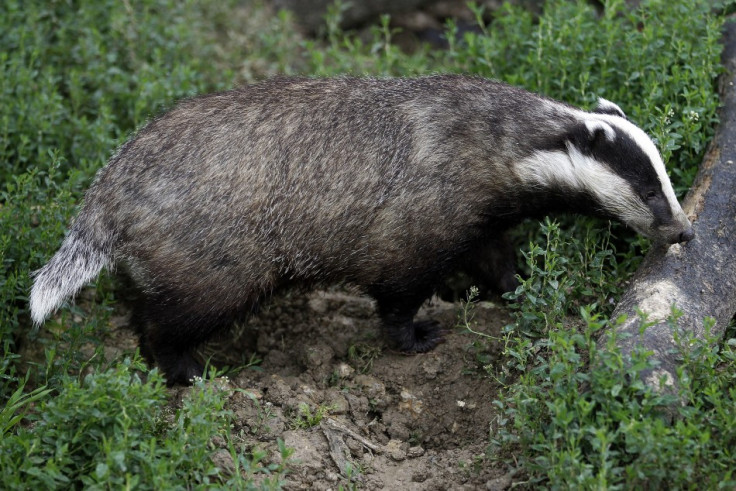Badger Cull Could Be Delayed by Threats to Farmers' Families

Farmers have admitted that the UK's planned badger cull could be delayed until next year because of threats and intimidation from protesters.
Campaigners against the mass shooting have stepped up their campaign and started posting warnings in areas earmarked for the cull, reportedly alerting families to keep their children and pets inside.
One farmer has already pulled out of the cull after receiving threatening phone calls.
More than 100,000 badgers could be killed across the country as part of a scheme to halt the spread of bovine TB. West Gloucestershire is one of the two areas where the cull is due to take place. West Somerset is expected to be announced as a culling zone next week.
More than 130,000 people have signed a petition against the cull on the Downing Street website. Some campaigners have escalated their protests against the plans, leading to accusations of intimidation.
Carol Wainwright, a farmer from Forthampton, near Tewkesbury, revealed she had withdrawn from the scheme after she started receiving threatening phone calls.
She said: "I live with a disabled partner and I was terrified of the harassment. It worried me sick. For all I know they could set light to my hay barn."
An activist in the Stop the Cull group said: "As soon as the firing starts, any farm involved in the cull will be part of the interactive map we are creating.
"Anyone who is involved in the badger cull will, if they are involved in any questionable activities, go up on our website.
"We have put in Freedom of Information claims to examine farm subsidies to see if there are any fraudulent claims.
"Anyone who is involved can expect to be under a microscope."
Adam Quinney, vice-president of the National Farmers Union, condemned the protests.
He said: "They have been putting these posters up for a week or two. It is pure scaremongering.
"They are just trying to up the ante. It is totally unnecessary. The whole procedure of the cull sees sites chosen carefully for safety reasons and marksmen are specially trained."
A spokesman for the Department of the Environment, Food and Rural Affairs, defended the cull.
"Bovine TB is a chronic and devastating disease. It forced the slaughter of over 26,000 cattle last year and is taking a terrible toll on our farmers and rural communities," the spokesman said.
"Nobody wants to cull badgers, but scientific evidence shows that a controlled cull will help reduce bovine TB, and no country in the world where wildlife carries TB has eradicated the disease in cattle without tackling it in wildlife too."
© Copyright IBTimes 2025. All rights reserved.






















